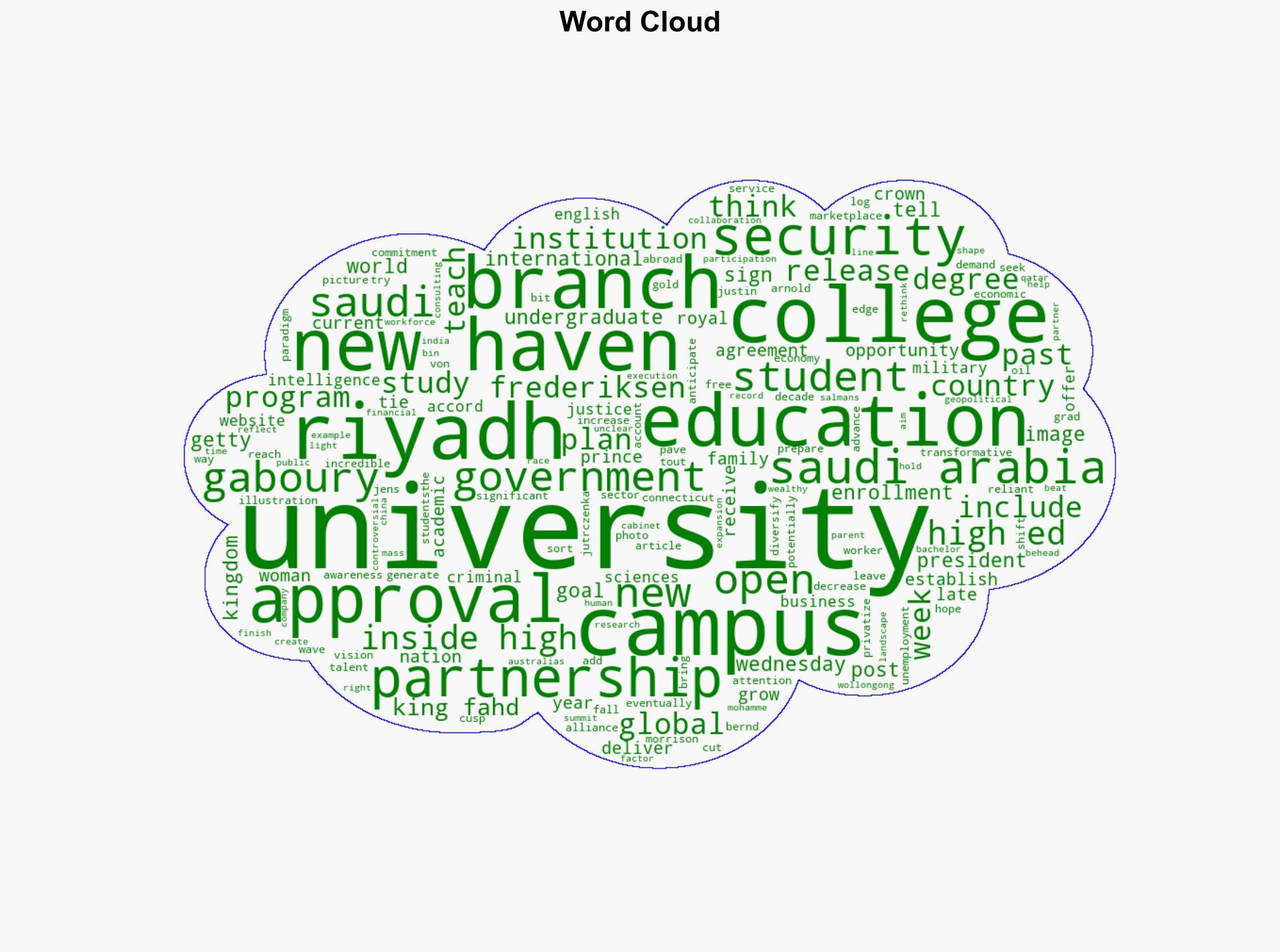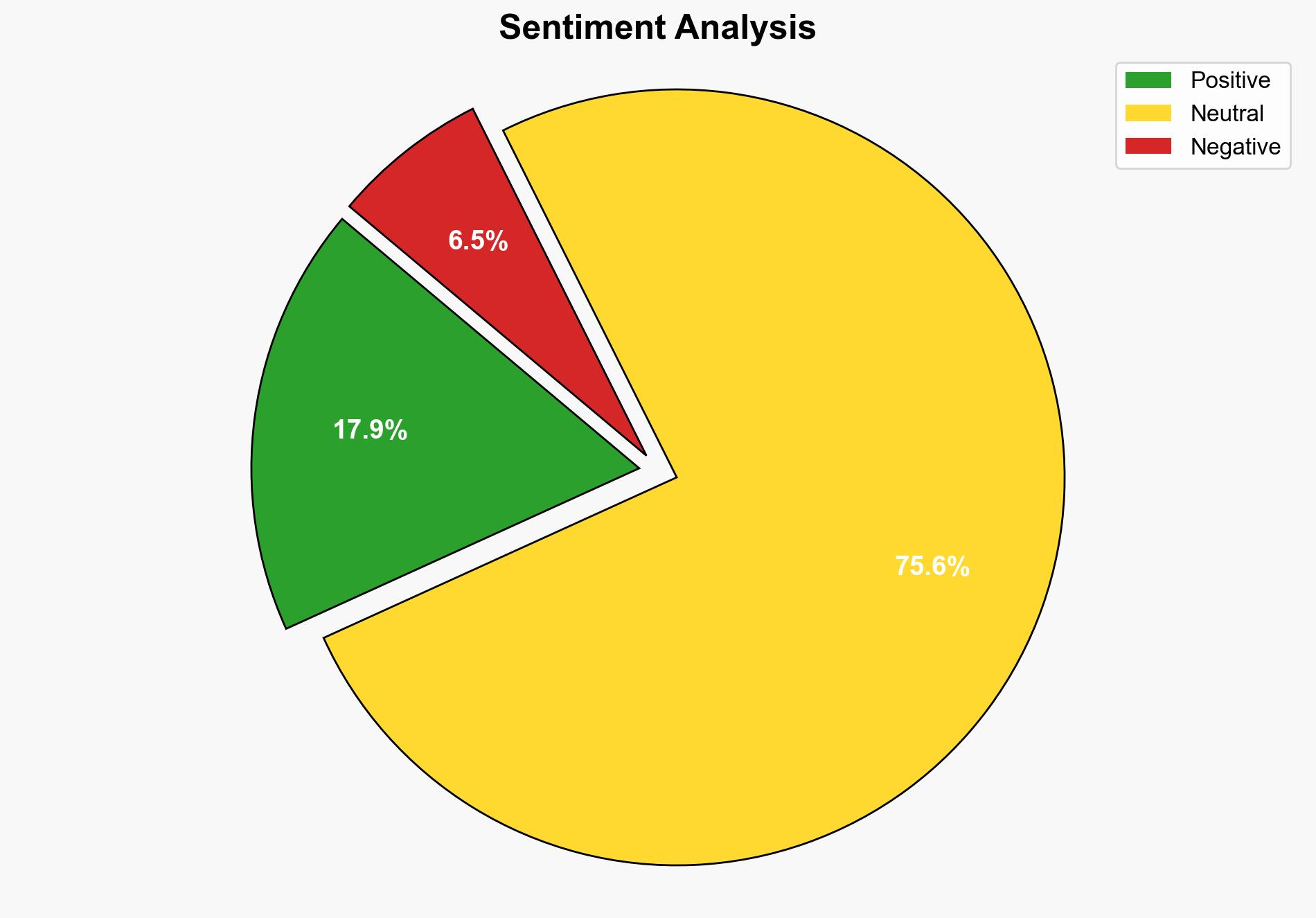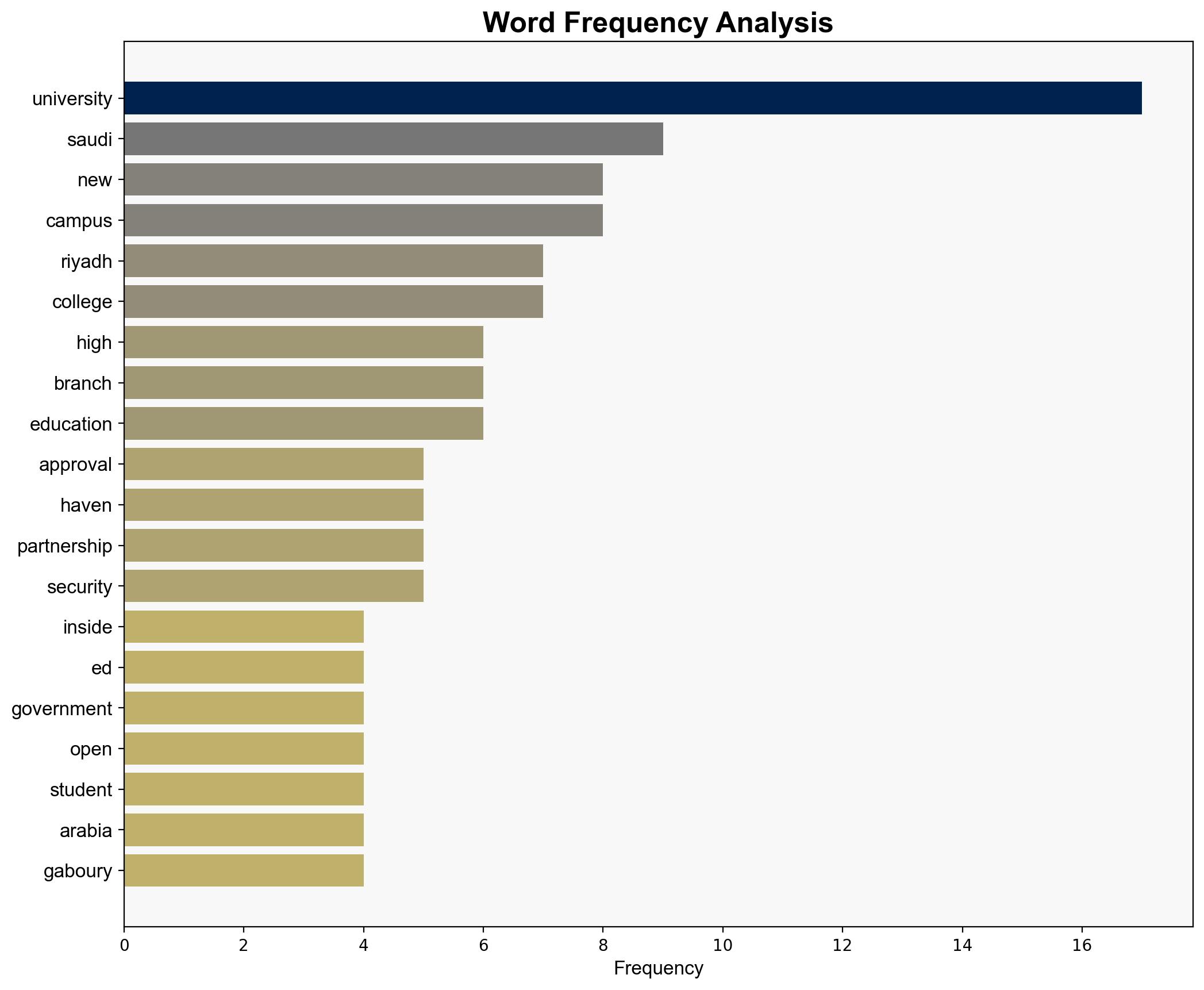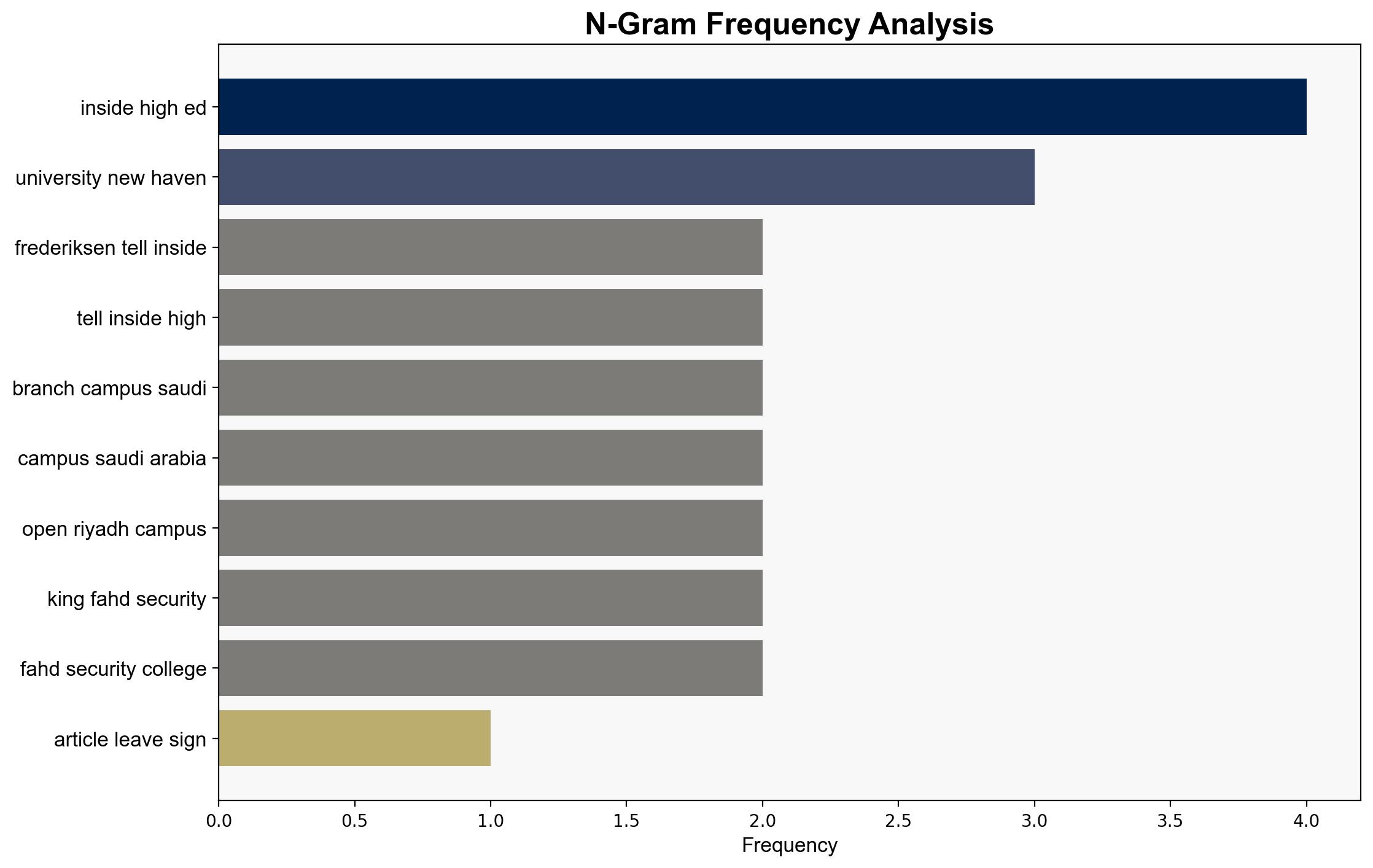Saudi Arabia Approves Branch Campus for Longtime Partner U of New Haven – Inside Higher Ed
Published on: 2025-10-09
Intelligence Report: Saudi Arabia Approves Branch Campus for Longtime Partner U of New Haven – Inside Higher Ed
1. BLUF (Bottom Line Up Front)
The approval of a University of New Haven branch campus in Riyadh aligns with Saudi Arabia’s strategic vision to diversify its economy and enhance its educational landscape. The most supported hypothesis is that this move is part of Saudi Arabia’s broader effort to modernize and reduce reliance on oil, with a moderate confidence level. It is recommended to monitor the geopolitical implications of increased Western educational presence in the region, particularly in light of Saudi Arabia’s human rights record.
2. Competing Hypotheses
1. **Hypothesis A**: The establishment of the University of New Haven campus is primarily driven by Saudi Arabia’s Vision 2030, aiming to diversify the economy and improve educational standards by integrating international institutions.
2. **Hypothesis B**: The decision is a strategic move by Saudi Arabia to improve its global image and mitigate criticism over its human rights record by fostering international partnerships and educational exchanges.
Using the Analysis of Competing Hypotheses (ACH), Hypothesis A is better supported due to the alignment with Saudi Arabia’s stated economic diversification goals and the broader trend of educational expansion within the kingdom.
3. Key Assumptions and Red Flags
– **Assumptions**: It is assumed that the Saudi government’s approval is primarily economically motivated and not significantly influenced by geopolitical considerations. It is also assumed that the University of New Haven’s presence will not face significant operational challenges due to political tensions.
– **Red Flags**: The potential for backlash from human rights organizations and the risk of the campus being used as a tool for political leverage by the Saudi government. There is also a lack of clarity on how the campus will navigate potential cultural and legal constraints.
4. Implications and Strategic Risks
The establishment of the campus could enhance Saudi Arabia’s educational infrastructure and contribute to workforce development in new economic sectors. However, it may also expose the university to reputational risks due to Saudi Arabia’s human rights issues. Additionally, increased Western presence may lead to geopolitical tensions, particularly with nations critical of Saudi policies.
5. Recommendations and Outlook
- Monitor the implementation of the campus to assess its impact on local education and economic diversification efforts.
- Engage with human rights organizations to address potential concerns and mitigate reputational risks.
- Scenario Projections:
- **Best Case**: Successful integration of the campus leads to enhanced educational standards and economic growth.
- **Worst Case**: The campus becomes embroiled in geopolitical tensions and faces operational challenges due to cultural and legal constraints.
- **Most Likely**: The campus operates with moderate success, contributing to educational goals while navigating periodic political and reputational challenges.
6. Key Individuals and Entities
– Jens Frederiksen
– Mario Gaboury
– Crown Prince Mohammed bin Salman
– University of New Haven
– King Fahd Security College
7. Thematic Tags
national security threats, economic diversification, international education, geopolitical strategy




